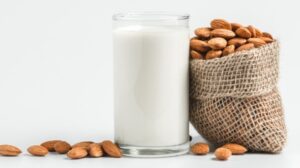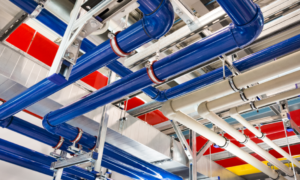In today’s fast-paced world, many individuals seek quick solutions to weight loss. The desire for rapid results often drives people to explore various diets, supplements, and exercise regimens. However, while fast weight loss can be appealing, it’s important to approach it thoughtfully to ensure both effectiveness and safety. In this article, we’ll explore various methods for achieving fast weight loss, the benefits of such approaches, and key considerations to keep in mind.
Understanding Fast Weight Loss
Fast weight loss typically refers to losing a significant amount of weight in a short period. While this can be motivating, it’s crucial to understand that rapid weight loss is not always sustainable and can sometimes lead to health issues. Therefore, it’s essential to balance your desire for quick results with healthy practices.
Popular Methods for Fast Weight Loss
- Intermittent Fasting
Intermittent fasting (IF) has gained popularity as a method for weight loss. This eating pattern involves cycling between periods of eating and fasting. Studies suggest that intermittent fasting can promote fat loss while preserving muscle mass. Common methods include the 16/8 method (16 hours of fasting, 8 hours of eating) and the 5:2 diet (eating normally for five days and restricting calories for two non-consecutive days).
- Low-Carb Diets
Low-carbohydrate diets, such as the ketogenic (keto) diet, focus on reducing carbohydrate intake while increasing fat consumption. This shift can lead to ketosis, a metabolic state where the body burns fat for energy instead of carbohydrates. Many people experience rapid weight loss with low-carb diets, especially in the initial stages due to reduced water weight and glycogen depletion.
- High-Intensity Interval Training (HIIT)
Incorporating HIIT into your exercise routine can accelerate weight loss. This form of training alternates between short bursts of intense activity and recovery periods. HIIT is effective for burning calories in a shorter time and can boost metabolism even after the workout has ended.
- Detox Diets and Cleanses
Detox diets and cleanses aim to eliminate toxins from the body, often through fasting or consuming specific juices and foods. While some individuals report quick weight loss, it’s important to approach detox diets cautiously. Many of these diets can lead to nutrient deficiencies and are not sustainable long-term.
- Meal Replacement Shakes
Meal replacement shakes can be an effective tool for fast weight loss, as they help control caloric intake while providing essential nutrients. However, it’s crucial to choose shakes that are balanced and not overly restrictive. These can be convenient for busy lifestyles but should not be the sole source of nutrition.
Benefits of Fast Weight Loss
- Motivation Boost
Seeing quick results can be incredibly motivating. It can encourage individuals to stick with their weight loss plan and make healthier choices.
- Improved Health Markers
Rapid weight loss can lead to improved health markers, such as lower blood pressure, improved cholesterol levels, and reduced blood sugar levels. This can significantly benefit individuals at risk for chronic diseases.
- Increased Energy Levels
Many people report feeling more energetic as they shed excess weight. This can lead to a more active lifestyle, further enhancing weight loss efforts.
- Enhanced Self-Esteem
Achieving weight loss goals can boost self-esteem and confidence, positively impacting various aspects of life, including social interactions and professional endeavors.
Key Considerations for Fast Weight Loss
While the prospect of fast weight loss can be enticing, it’s essential to consider several factors to ensure a safe and sustainable approach:
- Health First
Always prioritize your health. Rapid weight loss can sometimes lead to health risks such as nutrient deficiencies, muscle loss, and gallstones. Consult with a healthcare professional before starting any weight loss program.
- Sustainability
Consider whether the weight loss method is sustainable in the long run. Extreme diets or exercise regimens that aren’t maintainable can lead to yo-yo dieting, where individuals regain lost weight and then some.
- Balanced Nutrition
Even when aiming for fast weight loss, ensure that your diet remains balanced. Include a variety of foods to meet your nutritional needs, such as fruits, vegetables, whole grains, lean proteins, and healthy fats.
- Hydration
Staying hydrated is crucial during any weight loss journey. Sometimes, thirst is mistaken for hunger, leading to unnecessary calorie intake. Aim for at least eight glasses of water a day, or more if you’re active.
- Physical Activity
Incorporate regular physical activity into your routine. Exercise not only aids in weight loss but also helps maintain muscle mass and boosts overall health.
- Set Realistic Goals
While fast weight loss is desirable, setting realistic and achievable goals is essential. Aim for a steady rate of weight loss, typically around 1 to 2 pounds per week, for sustainable results.
- Listen to Your Body
Pay attention to how your body responds to changes in diet and exercise. If you feel fatigued, dizzy, or unwell, reassess your approach and consult a healthcare professional.
Conclusion
Fast weight loss can be an appealing goal, especially for those seeking quick results for a special occasion or personal motivation. However, it’s essential to adopt a balanced and informed approach to ensure that your efforts lead to lasting change and improved health. By combining effective methods such as intermittent fasting, low-carb diets, and HIIT with a focus on nutrition and well-being, you can embark on a successful journey toward your weight loss goals. Remember, the ultimate aim should be to develop healthier habits that you can maintain over time, leading to not just weight loss, but a healthier, happier you.






